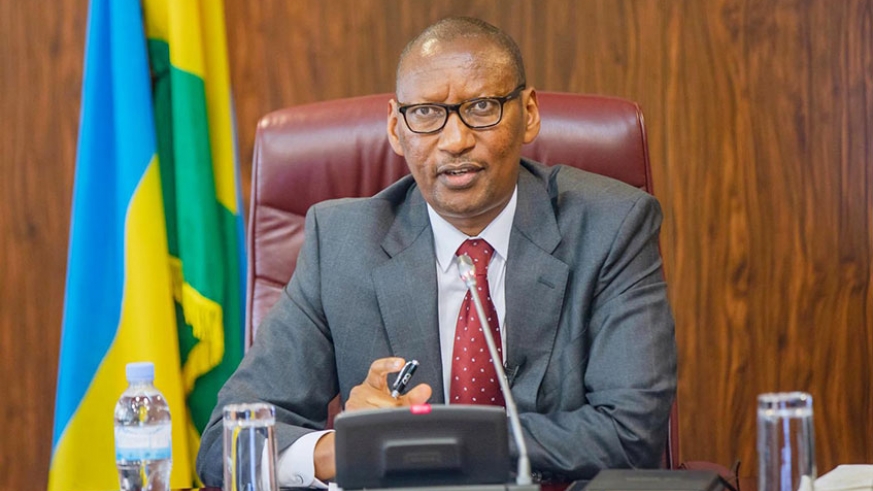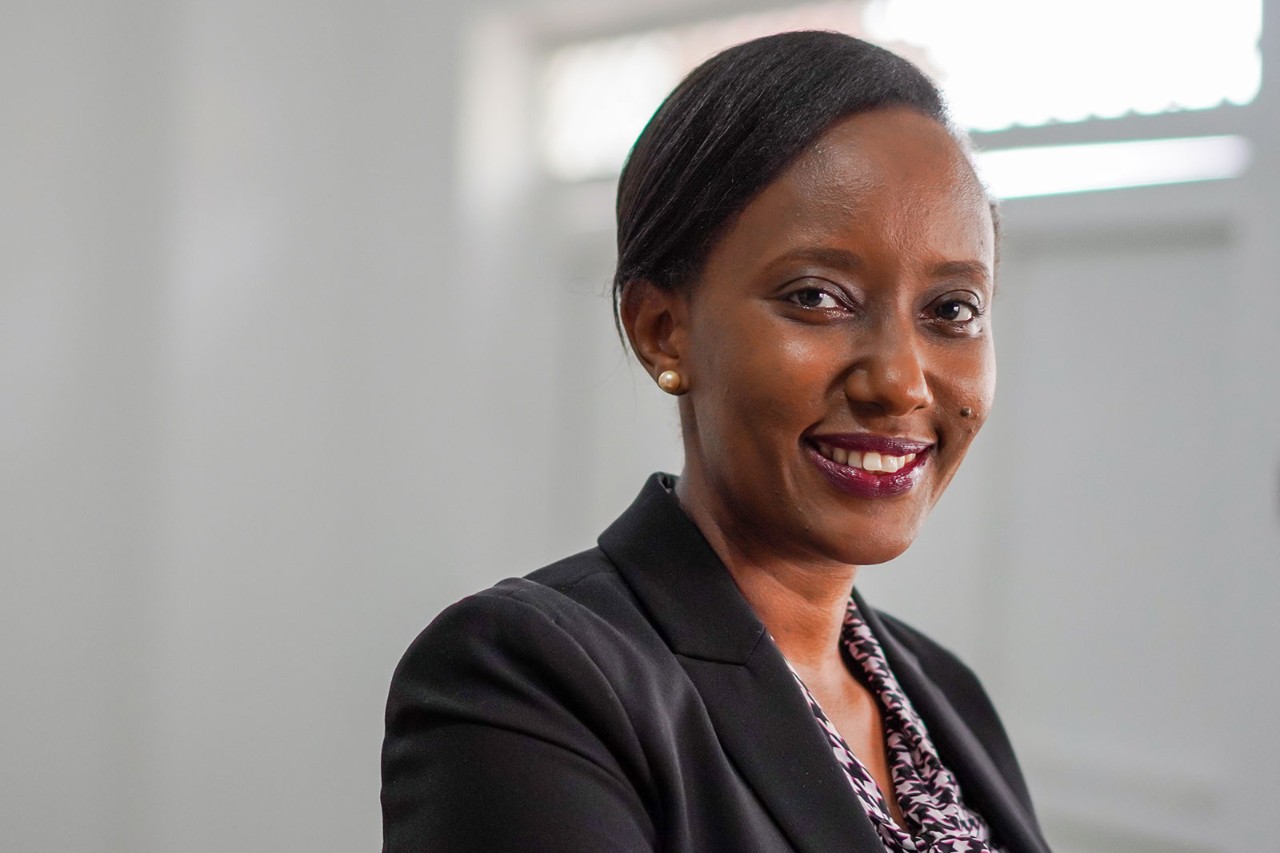The CARBON Copy Team offers a deep-dive into cryptocurrency adoption in Rwanda, the implementation of a CBDC, and what opportunities might exist for Web3 regenerative finance (ReFi).

Web3 Regenerative Finance (ReFi) Explained | CARBON Copy
The preeminent source of ReFi news, information, and analysis.
https://carboncopy.news/learn/regenerative-finance-refi-explained/
While cryptocurrency usage is on the rise throughout the world, there is still a long way to go on the African continent. Sub-Saharan Africa accounted for 2.3% of global cryptocurrency transaction volume between July 2022 and June 2023, according to The 2023 Geography of Cryptocurrency Report by Chainalysis, by far the smallest crypto economy. Nigeria is one exception, ranking 2nd in global crypto adoption, while Kenya (21), Ghana (29), and South Africa (31) also rank highly.
There have been positive steps in some East African countries, like Kenya and Tanzania, but efforts in Rwanda are still at an embryonic stage. The central bank remains sceptical and cautious about the introduction and use of the technology. This article explores the state of cryptocurrency in Rwanda and what it means for Web3 regenerative finance (ReFi). It discusses the regulatory situation, current trends, development of a national cryptocurrency, and draws comparisons with other East African countries.
The state of cryptocurrency in Rwanda
The National Bank of Rwanda (BNR) has been cautious about cryptocurrencies due to concerns about risks like fraud and money laundering. However, it has not imposed an outright ban. Instead, it has issued warnings to the public about the risks involved in investing in cryptocurrencies. As a result, only an estimated 1.5% of the Rwanda population owns cryptocurrency, according to Triple-A cryptocurrency ownership data.
As early as March 2018, during a presentation of the Monetary Policy and Financial Stability Statement (MPFSS), NBR Governor, John Rwangombwa said cryptocurrency was a good innovation but too risky because of lack of regulation and a lot of grey area around it, so the challenges of avoiding it being used for money laundering and financing terrorism, and Rwanda has not accepted it as any means of payment.

© Frontier Africa Reports
We advise people not to invest in it today. We have put up a team, and working with stakeholders to study more around this currency at national level and a taskforce to position ourselves vis-a-vis these new technologies.
The BNR's attitude towards central bank digital currencies (CBDCs) has been a different matter. A report by BNN Bloomberg in 2019 indicated that the BNR was actively looking at ways to implement its own CBDC but that many hurdles still remained.

© AB Magazine
There are still concerns about how exactly you convert the entire currency into digital form, how to distribute that and how fast can you process those transactions. Challenges come in, if technology is down how do you deal with such issues? We will join in once we are ready.
In early 2022, BNR Deputy Governor, Soraya Hakuziyaremye, announced that the country's stance on CBDCs would be revealed by the end of the year. At that time, it was expected research will have been done to determine whether a central bank digital currency (CBDC) would be issued or not.
On November 27th, 2023, while presenting the central bank's annual report for the financial year 2022-23 to a joint parliamentary plenary session, Rwangombwa disclosed that a scheme to develop a CBDC was underway after a study showed that the currency is needed in the country.
On CBDC, we completed the first study to see whether it is necessary to set up the digital currency. The study indicated that it is relevant, it can be done, and it is necessary. After that, we will do a trial on how that can be implemented, and which technology we can use. It is an ongoing process that can take about two years before we issue a CBDC for use.
In May 2024, BNR released the detailed feasibility study on CBDCs with the ultimate aim of implementing a CBDC that would help the country modernise its financial sector.
The study listed fifteen positive outcomes, of which four are considered "sweet spots" relative to current financial solutions:
- Enhancing resilience against network and electricity disruptions
- Fostering innovation and competition
- Advancing the country's cashless economy initiative
- Improving the efficiency and inclusivity of cross-border remittances
The proposed CBDC model is a "two-tier, universal, zero-interest system with partial pseudo-anonymity." Typically, a two-tier system involves the central bank distributing the currency through selected commercial banks and payment platforms, while still remaining liable for the CBDC. This means CBDC holders are not exposed to the default risk of the distributors.
Adoption remains the primary risk, according to the study. Strong efforts to educate the population about use cases and mechanics are needed to ensure a smooth rollout and future use.
The suggested next steps are a proof of concept followed by pilot testing, but the study makes clear that the central bank should proceed with caution.
Regional comparisons
In East Africa, great disparities have been noted in the adoption, integration, and use of cryptocurrencies. One notices that while Kenya and Tanzania have already moved forward, Uganda and Rwanda remain at the initial stages and lag far behind.
In Kenya, home to mobile money pioneer M-PESA, some 5% of the population is estimated to own cryptocurrency, as per Triple-A cryptocurrency ownership data. As the debate around CBDC implementation rages on, the government proposed amendments to the Capital Markets Bill in 2023 that would modify the tax code, categorise crypto assets as securities, and tax them as capital gains. This was met with opposition by crypto/blockchain advocacy groups, which ultimately resulted in instructions by the National Assembly’s Departmental Committee on Finance and National Planning to instruct the Blockchain Association of Kenya to "prepare a preliminary version of a bill that could be used to regulate virtual asset service providers." That being said, concerns around Worldcoin's presence in the country have been a major topic of conversation at the national level.
In Tanzania, as of July 2023, an estimated 2.34% of the population owned cryptocurrency. In February 2024, the country's president, Samia Suluhu Hassan, suggested in a speech that the Bank of Tanzania should conduct a study on the use of cryptocurrency so that the country could embrace the future of the technology. This was seen as a significant step after years of pessimism and an outright ban on the use of cryptocurrencies. One area the country has been successful in is crypto mining. As of July 2023, it ranked 72nd out of 249 countries.
In Uganda, an estimated 1.2% of the population owns cryptocurrency, as per Triple-A cryptocurrency ownership data. Cryptocurrencies are still not recognized as a legal tender, and the government maintains that citizens use them entirely at their own risk. One reason for the continued trepidation seems to be the country's experience with the OneCoin scam. According to a Le Monde article, the scam fooled many Ugandans and perpetrated a string of further scams that has turned the country into a hotbed of sorts. Calls have been made, however, for cryptocurrency to be regulated in the country.
Prospects for Web3 regenerative finance (ReFi)
After centuries of exploitation, Sub-Saharan Africa has established itself as the epicentre of ReFi. Projects in Kenya, Tanzania, and Nigeria, among others, are actively leveraging ReFi solutions like public goods funding, ecological credit issuing, and micro-lending to make ecological and social impact at the grassroots level.
Rwanda has yet to see much in the way of ReFi activity. Some of this can be attributed to low cryptocurrency adoption rates, but the more likely reason is related to an influx of foreign development capital and the government being active in tackling climate change, water supply, and electricity access. Progress has been made but there is still a ways to go, leaving a gap at the grassroots level that could potentially be filled by ReFi solutions.
Another plus is Rwanda's growing startup ecosystem, particularly in the tech and social enterprise sectors. It is currently ranked 3rd regionally and 95th globally, according to the Global Startup Ecosystem Index. Innovation Hubs like Kigali Innovation City, home to Carnegie Mellon University Africa, provides a supportive environment for startups. Entrepreneurship programs, such as the E4Impact MBA in Gikondo, encourage innovation and provide mentorship, funding, and networking opportunities.
Moreover, the Rwandan government offers various grant programs to support sustainable development and innovation. These include, among others, the Rwanda Green Fund, an environment and climate change investment fund. At a regional level, YouthConnekt is an initiative aimed at empowering young entrepreneurs.
As far as ReFi is concerned, there are four areas where it could make an impact in the country:
- Electricity access - Rwanda has been touted as a success story. In March 2024, 75% of households had access to electricity, up from 6% in 2009. 21% of that electricity is being provided by private-sector off-grid solar solutions, thanks in large part to financing support from the government. ReFi solutions could offer a way to speed up the transition to solar and fund community-owned infrastructure to connect the remaining 25% of households by creating incentives to provide supply.
- Potable water - UNICEF estimates that only 57% of the population has access to safe drinking water within 30 minutes of home. Similar to electricity, ReFi solutions can help fund community-owned infrastructure that brings potable water to households.
- Reforestation - According to Global Forest Watch, Rwanda lost 0.3% of natural forest. While the country has been lauded for its reforestation efforts, deforestation remains an issue in certain regions, especially as it relates to agriculture. As a means to incentivise reforestation and agroforestry at the smallholder farmer level, ReFi solutions can be implemented that generate high-quality carbon credits from newly planted trees. These credits can be sold internationally and generate an additional revenue stream for farmers.
- Climate change adaptation - Drought and extreme rainfall are having a significant economic impact on farmers, pastoralists and others at risk of extreme climate events. The Rwandan government suggests the economic impact could be up to 1% of national GDP. One ReFi solution gaining traction elsewhere in East Africa is the automated anticipatory cash transfer. The idea is that sensor data, AI, smart contracts, and mobile money solutions can be combined to deliver aid to people in advance of climate events so that they can protect their agricultural assets and relocate, if necessary.
Conclusion
Rwanda is well-positioned to support the adoption of cryptocurrency and a CBDC. With this comes education, experimentation, and innovation in the sector. Combined with the growing threat of climate change and a burgeoning startup scene, it's only a matter of time until founders being exploring ReFi use cases. When they do, they will be able to draw inspiration from examples in neighbouring countries like Kenya and Tanzania. We will start seeing Rwandan ReFi solutions participating in public goods funding and ecological credit issuance. Over time, this can build the kind of resilience to climate change that communities need to ensure a prosperous future.
This article represents the opinion of the author(s) and does not necessarily reflect the editorial stance of CARBON Copy.

